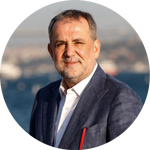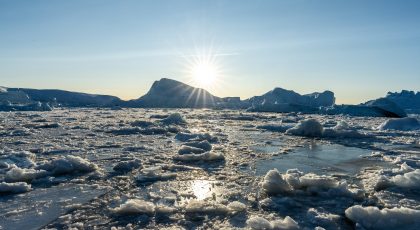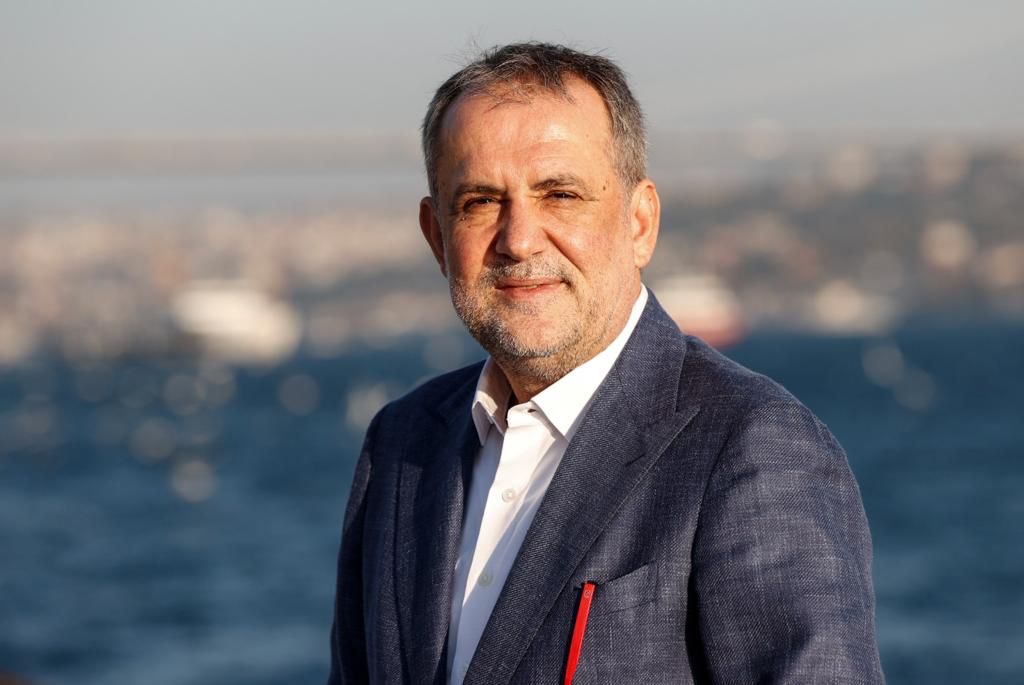We recently visited Vilnius, the Lithuanian capital, to attend the EU Environment Ministers ‘ Meeting. At the meeting, which was attended by 28 member states and candidate countries, issues such as climate change, biodiversity and the impacts of shale gas on the environment were discussed. At the summit, the Minister, Mr. Bayraktar had the opportunity to talk about Turkey’s efforts on climate change and biological diversity during a speech he delivered before the ministers of environment of the EU. While listening to the representatives of other countries, we realized how the Turkish geography was in terms of flora and fauna. We realized that the endemic diversity in Turkey is greater than the sum of all EU member states.
European ministers admitted how they brutally polluted the environment and nature during the process that began with the Industrial Revolution and are trying to restore them. We were surprised with what we heard. Ministers reminded new members and candidate countries that they should protect the environment while working on industrialization and sustainable development. In a nutshell, they said: “We used and polluted the air, water and soil roughly. But now, we are trying our best to protect all these assets. Learn from out mistakes.”
We have shortcomings
During that meeting, we had the opportunity to listen to Ms. Connie Hedegaard, the Chair of the Committee on Environment of the European Parliament. With a background on journalism, I would be lying if I said I wasn’t surprised by her expertise on climate change and biodiversity. Hedegaard’s questions posed to the Chinese deputy president, who refused to sign the Kyoto Protocol, impressed the majority of the audience, including myself. Her command of the issues and her knowledge as a non-academic journalist impressed the audience. When I saw how the Danish journalist, Ms. Hedegaard, carefully listened to the Chinese representative on climate change and asked questions and made remarks that pushed the representative, I took notice of an obvious gap in Turkey on this matter.
Same goes for the field of law, as well. Another problem is the lack of specialized law professionals with negotiation skills who can turn environmental issues into lawsuits, defend the right to environment of people, uphold Turkey’s interests in international meetings and are specialized in the field of environment. Ms. Astrid Schomaker, an environmental lawyer who attended representing the EU, left a mark on the 18th Meeting of the Contracting Parties to the Barcelona Convention, which was organized by the Ministry of Environment and Urbanization in Istanbul last week and attended by the environment ministers of Mediterranean countries under the theme of protecting the Mediterranean from pollution. Her command of the environment and ability to negotiate impressed not only us but all parties at the meeting.
In Turkey, there are many journalists who are experts in politics, sports, economy and tabloid news. However, the number of columnists and investigative journalists who write in the field of environment in printed, visual and social media, express ideas and persistently express certain problems is unfortunately not very high. This number must definitely increase.
An advice to young journalists and law professionals
Environmental issues are universal and prevail politics. They are a common denominator of people of various views. In recent times when environmental issues have exponentially come to the forefront, journalists and legal experts with objective views, thorough research and opposition with unerring arguments, advocacy based on scientific facts are going to be on high demand in years to come.
So my advice to young people, who will build a career on journalism or law, is to keep a close eye on global environmental issues and prepare themselves to be experts on environment by accumulating the knowledge to be able to keep tabs on the environmental conscience in Turkey. There is a huge need for journalists who are able to guide government officials, environmental ministers and mayors, oppose them in a well-informed manner, make reasonable and silent masses heard, be objective and take up expertise in environmental issues, and it will be even a bigger need in the future. When this need is met, government officials will be more careful and sensitive during projects they will implement. In all developed countries, specialized environmentalist journalists and legal experts advocate for societal assets, nature, flora and fauna, and take active part in legal cases. In today’s world where technology has relentlessly turned it into a society of consumption, journalists with impartial articles will attract more and more readers while legal experts are destined to become the main actors of the environmental agenda. Journalism that follows the classical political agenda is now outdated. The Danish journalist, Ms. Heegaard is a good example. And for law professionals, I can safely say that Ms. Astrid Schomaker, an environmental lawyer, is a good example. There is a need for skilled environmentalist law professionals who are familiar with the environment and can uphold the interests of Turkey in EU negotiations. There will be a bigger need for such people in the future.
I hope we will have our own Hedegard and Astrid Schomaker among the new generation of journalists and law professionals who can question environmental issues and are objective and well-equipped. If we do not raise law professionals and journalists who are specialized in environment-related issues, the society’s voice will not be heard.
Note: I would like to wish success to the newly-appointed Minister of Environment and Urbanization, Mr. İdris Güllüce.



